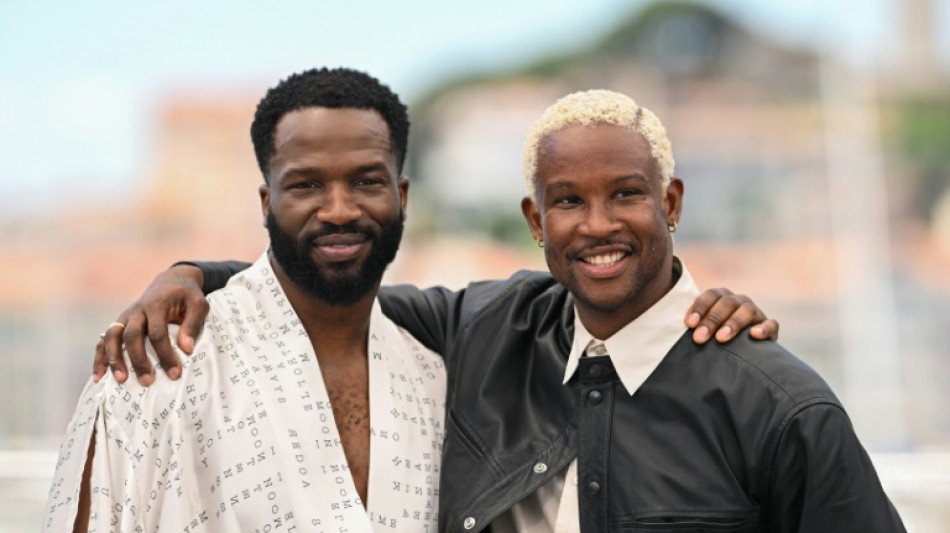
CMSC
0.0900

Akinola Davies Jr -- who has made history by directing Nigeria's first ever film in competition at the Cannes film festival -- lost his father when he was two.
"I've always collected father figures growing up," said the maker of "My Father's Shadow", which is in the running for the Camera d'Or for best first film.
His homeland has also been looking for a father figure for a long time to put an arm round its shoulder, Akinola told AFP.
The film -- which The Guardian praised as "rich, heartfelt and rewarding" -- follows a father and his two sons on an odyssey through Lagos just as the military "pulled the rug away from dreams of democracy" with yet another coup, annulling the result of the 1993 election.
Many Nigerians had hoped opposition leader Moshood Abiola, known as "MKO", would save them from the military, Akinola said.
Instead the generals threw him in prison.
- 'Dreams deferred' -
"There are interesting parallels between the father figures as the president of the country and as a military dictator," he said.
"Growing up there was a perception that a father figure had to be a strong, authoritarian disciplinarian," said Davies, who grew up between London and Lagos.
That was certainly the figure that Nigeria got after the coup in the shape of General Sani Abacha.
But Akinola and his film subtly suggests that there could have been an alternative father of the nation -- a kinder, gentler, more nurturing "Daddy" personified by Sope Dirisu.
The "Gangs of London" star plays a father who brings his boys from the village to Lagos in the vain attempt to get the months of backpay he is owed.
He may be a good man but he is far from flawless as they discover that his eye has wandered from his wife in the big smoke.
"The film is about the boys being able to hold their father accountable... And because they get to see how to be accountable they can be accountable themselves," Akinola said.
The young director said the film was all about "interrogating masculinity", making a father's relationship with his children a "two-way street and not a dictatorship".
Akinola wrote the screenplay with his older brother Wale, who he "idolised" as a kid -- a relationship that is mirrored in the film, with brothers Godwin Chimerie Egbo and Chibiuke Marvellous Egbo playing the boys.
In a case of life imitating art, Dirisu had to be "Daddy" on set, gently laying down the law a few times, even as Marvellous -- in another echo of the script -- tried to keep his younger brother in check.
"There are levels and levels," Akinola laughed.
"I've witnessed my brothers become fathers, and the fatherhood that they perform with their kids is something that I would have loved to have had."
With the film garnering warm reviews, and Akinola rubbing shoulders with Hollywood royalty on the red carpet, he said he hoped one day Nigeria's dreams would also come true.
But the dreams of Africa's most populous country have been "deferred and deferred and deferred", he told AFP, "and they're still being deferred".
N.Simek--TPP